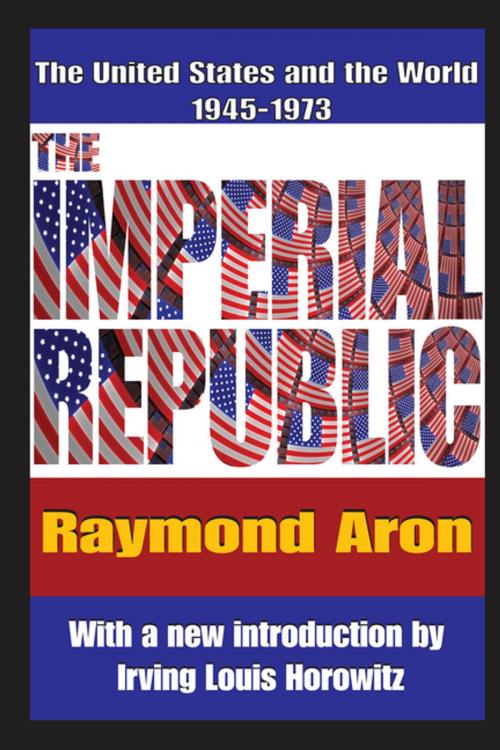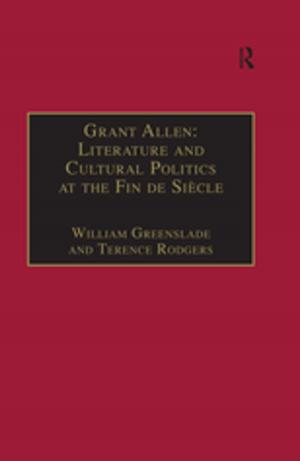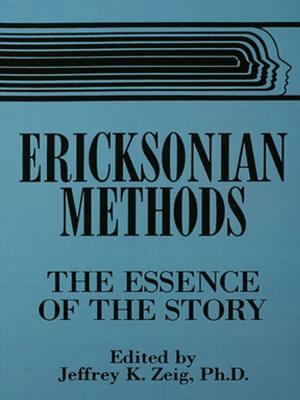The Imperial Republic
The United States and the World 1945-1973
Nonfiction, Social & Cultural Studies, Political Science, Politics, History & Theory| Author: | Irving Horowitz | ISBN: | 9781351480932 |
| Publisher: | Taylor and Francis | Publication: | July 5, 2017 |
| Imprint: | Routledge | Language: | English |
| Author: | Irving Horowitz |
| ISBN: | 9781351480932 |
| Publisher: | Taylor and Francis |
| Publication: | July 5, 2017 |
| Imprint: | Routledge |
| Language: | English |
The Imperial Republic based as it is on Raymond Aron's realist philosophy, is involved only indirectly or by implication in the disputes about moralism, revisionism, and even imperialism. Its main aim is to account for the diplomacy of the United States as it was in a special time period. Like all diplomacy, it can be explained only within the system of inter-state relations to which the protagonist belongs.United States diplomacy during the twenty- eight year period of 1945-73 is examined from strategic, political, and moral stand points were in diplomats openly declared their aim, and did they achieve it? Does the result justify accusations either of incompetence or of imperialism? Does not the reaction within the United States to a policy which had been a striking success now induce second thoughts about both the policy and its results? The imperial republic is trying to throw off its burden; once a missionary, it has lost the sense of mission; it is still capitalist, but its spoiled children no longer believe in money; it was puritan, but its cities abound in sex shops; it regards itself as scientific, yet mystical and nudist sects are common.The reader is not asked to endorse Aron's paradoxical interpretations, but to try to discover the reasons for any disagreement he may feel regarding differences in political judgment. People who have acquired the habit of thinking of the contemporary world in Manichaean terms-in terms of the reduction of whole populations to slavery by monsters, or in terms of capitalism, imperialism, or revisionism- may be out raged by a book that is not concerned with grounds for outrage and in which there are neither villains nor heroes; but rather with mixed messages by decent policymakers. At the time of its initial publication The Times Literary Supplement called The Imperial Republic "an important book . . . no other author does so much." It remains so!
The Imperial Republic based as it is on Raymond Aron's realist philosophy, is involved only indirectly or by implication in the disputes about moralism, revisionism, and even imperialism. Its main aim is to account for the diplomacy of the United States as it was in a special time period. Like all diplomacy, it can be explained only within the system of inter-state relations to which the protagonist belongs.United States diplomacy during the twenty- eight year period of 1945-73 is examined from strategic, political, and moral stand points were in diplomats openly declared their aim, and did they achieve it? Does the result justify accusations either of incompetence or of imperialism? Does not the reaction within the United States to a policy which had been a striking success now induce second thoughts about both the policy and its results? The imperial republic is trying to throw off its burden; once a missionary, it has lost the sense of mission; it is still capitalist, but its spoiled children no longer believe in money; it was puritan, but its cities abound in sex shops; it regards itself as scientific, yet mystical and nudist sects are common.The reader is not asked to endorse Aron's paradoxical interpretations, but to try to discover the reasons for any disagreement he may feel regarding differences in political judgment. People who have acquired the habit of thinking of the contemporary world in Manichaean terms-in terms of the reduction of whole populations to slavery by monsters, or in terms of capitalism, imperialism, or revisionism- may be out raged by a book that is not concerned with grounds for outrage and in which there are neither villains nor heroes; but rather with mixed messages by decent policymakers. At the time of its initial publication The Times Literary Supplement called The Imperial Republic "an important book . . . no other author does so much." It remains so!















